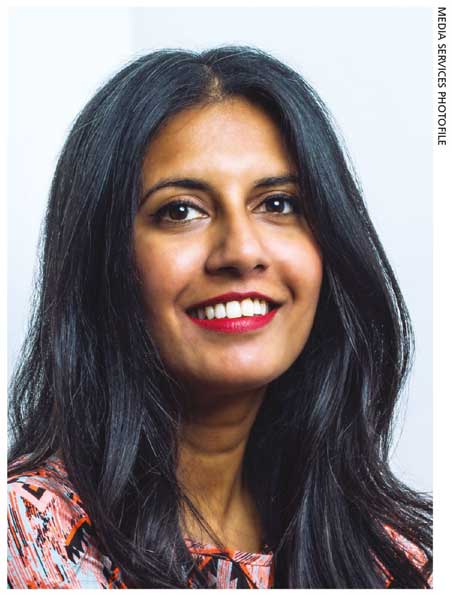ENTERTAINMENT INDUSTRY
SYMPHONIES AND BRAND VOICES
Leah Marikkar discusses the emerging trends in the entertainment industry
Compiled by Azraa Killru
 Q: What are the latest trends in creative communications?
Q: What are the latest trends in creative communications?
A: In my view, it’s not about trends. Globally, only brave brands and agencies completely reinvented themselves to stay relevant once they realised it was the only way to connect with audiences.
Being truly in touch with your market and audiences is what saved so many.
The concept of experiences, discovery, events, interactions and moments all froze; and instead, people had to create connections that still resonated albeit from a distance.
Some great campaigns recognised the situation they were in and opted for personal outreach using advocates with real people.
While I despise fast food, one notable brand that adapted exceptionally well was KFC. Its agency – Mother London – recognised a critical truth that affected what KFC stood for: How could they use their slogan ‘finger lickin’ good’ as their mandate during a pandemic?
They took a leap and suspended it, pixelated on posters and food buckets, saying instead: “That thing we always say? Ignore it. For now.” That was brave.
Q: Could you outline how the entertainment industry has changed in the last 18 months?
A: Sri Lanka barely has a legit music industry – that requires key players to genuinely be in the game for shared reasons. It needs a real venue circuit, record labels and artiste management to distribution, all of which are still embryonic here.
The only positive is that there are more artistes out there than you realise – and they’ve been working hard being their own promoters and labels. Following the height of the pandemic, many have looked inward because they’ve been forced to stay at home and work on their craft.
In the past, artistes found it very challenging to make money from their music, thanks to the challenges caused by the digital ecosystem.
So over the past decade, live experiences became the key opportunity to make money because digital couldn’t replace them. The feeling of standing in the middle of a festival audience listening to your favourite band seemed impossible to replicate… until we were forced to over the past year or so.
We were thrust into the world of live streaming and many artistes struggled to create a connection. What’s interesting is the famous K-Pop band BTS, which was way ahead of the game.
In 2018, they were already testing live streaming experiences with subscription fees.
They got the best production teams, created theatre style shows and filmed gigs live to audiences charging up to US$ 30 a subscription, which changed the game as they were ready when things changed. This is what it means to be in music now – you have to be inventive.
Q: What are the challenges facing our entertainment industry?
A: Sri Lanka has massive untapped potential when it comes to artistes. Only those who are brave and embrace their deeper cultural identity tend to succeed.
There’s been no reward for original music – we’re all guilty of making them focus on covers. We’ve fostered a culture of artistes believing their own creations aren’t good enough. This has to change.
Radio stations have held back critical music curation and they rarely encourage local artistes to be original – we’re still stuck in the ’80s and ’90s.
But as a result, people now explore music entirely on their own through live streaming, recommendations and live events. This is where things start to evolve.
The other issue is there’s no trajectory for artistes to grow from an open mic night of 30 people to a stadium of 5,000.
We need to develop a culture of creative exploration for artistes and audiences. Right now, Sri Lanka doesn’t have a system in place to provide that.
Q: How can organisations leverage the power of non-traditional marketing campaigns?
A: Authenticity is crucial for marketing campaigns. Non-traditional marketing campaigns are powerful because they’re more integrated with new touchpoint driving fresh connections.
We need to be solution neutral when approaching a brief, instead of thinking traditional combinations of TV, print and radio campaigns. Brands need to speak in a credible voice to reach people they wouldn’t normally be able to reach. This demands brevity.
Agencies are keen to build brand love, which is quite a challenge because love is synonymous with trust – and to create that trust takes time, energy, money and indeed, a belief in what you have to say or offer.
The non-traditional accepts that it may not be about love; instead, it drives more opportunities to be seen and heard to offer people experiences without expecting anything in return.




